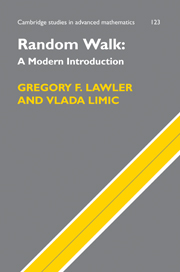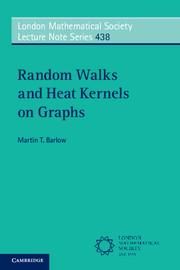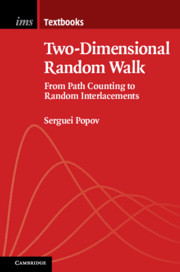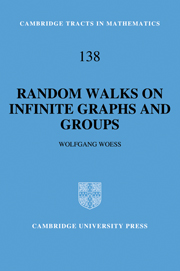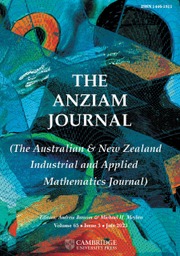Random Walk: A Modern Introduction
Random walks are stochastic processes formed by successive summation of independent, identically distributed random variables and are one of the most studied topics in probability theory. This contemporary introduction evolved from courses taught at Cornell University and the University of Chicago by the first author, who is one of the most highly regarded researchers in the field of stochastic processes. This text meets the need for a modern reference to the detailed properties of an important class of random walks on the integer lattice. It is suitable for probabilists, mathematicians working in related fields, and for researchers in other disciplines who use random walks in modeling.
- Suitable for researchers from a variety of fields who use random walks in modeling
- Extensive bibliography assists further reading
- Contains over 80 exercises
Reviews & endorsements
"... precisely presents many classical results in an excellently written and easy-to-follow manner."
Alexander Tzanov, Computing Reviews
"The book admirably serves its purpose as an introduction to its branch of the theory of random walks, as well as an excellent reference for many of the key results of the theory. The book under review contains a wealth of carefully organized and clearly presented information, and will be a valuable addition the shelves of any random-walk enthusiast."
Andrew R. Wade, Mathematical Reviews
Product details
July 2010Hardback
9780521519182
376 pages
235 × 156 × 23 mm
0.65kg
7 b/w illus. 85 exercises
Available
Table of Contents
- Preface
- 1. Introduction
- 2. Local central limit theorem
- 3. Approximation by Brownian motion
- 4. Green's function
- 5. One-dimensional walks
- 6. Potential theory
- 7. Dyadic coupling
- 8. Additional topics on simple random walk
- 9. Loop measures
- 10. Intersection probabilities for random walks
- 11. Loop-erased random walk
- Appendix
- Bibliography
- Index of symbols
- Index.

